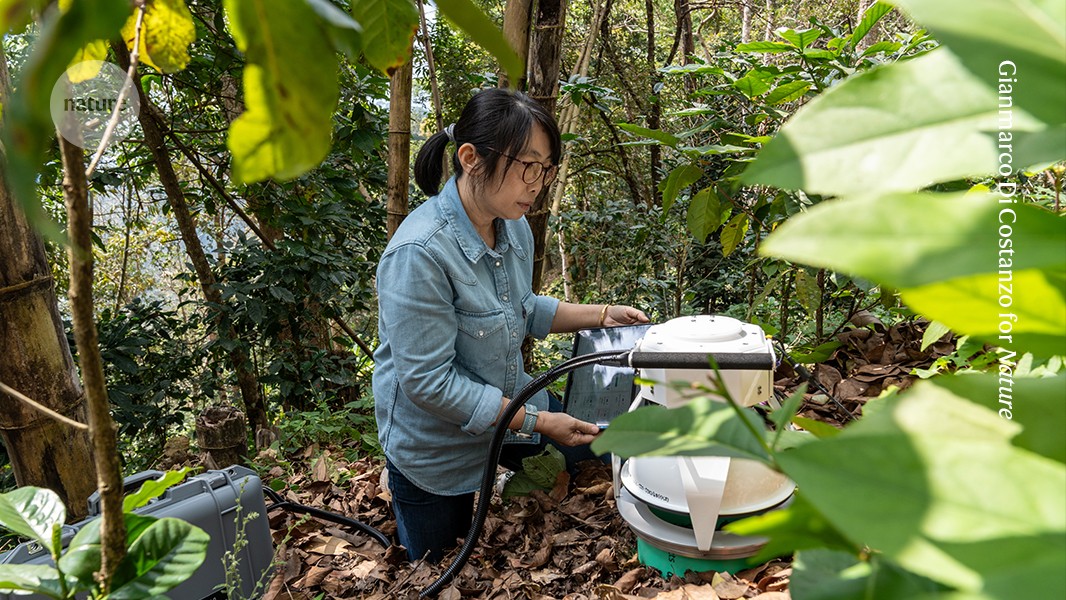“In this photo, taken in February, I’m perched on a steep hillside, measuring, in real time, the wisps of greenhouse gas coming from the soil in a coffee plantation in Chiang Mai province in northern Thailand. In this mountainous landscape, it takes two of us to carry the trace-gas analysis equipment out into the field to take these measurements. But by doing so, we hope to identify sustainable farming methods that will enable the region to remain productive in the face of climate change, far into the future.
Agriculture is a big emitter of greenhouse gases — it accounts for around 15% of Thailand’s carbon emissions — but the sector’s emissions tell only half the story. Depending on how soils are farmed, they can also absorb a lot of carbon in the form of organic matter. Accumulating soil organic matter not only improves agriculture’s carbon balance but also enhances soil structure, with benefits from boosting yields to making the soil more erosion-resistant.
My work compares the carbon balance of different farming methods by taking direct readings of soil-carbon gains and losses. For the next two years, we will return to this coffee plantation every two months to measure the soil’s emissions and carbon accumulation. We will compare areas under organic cultivation with areas grown with chemical use.


